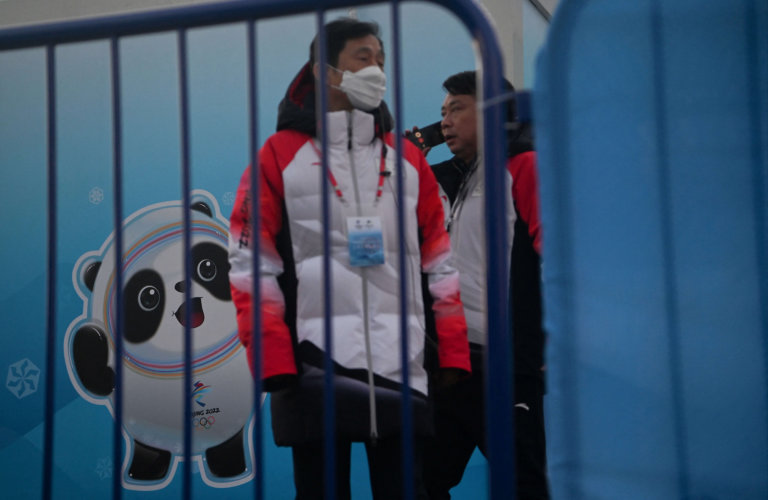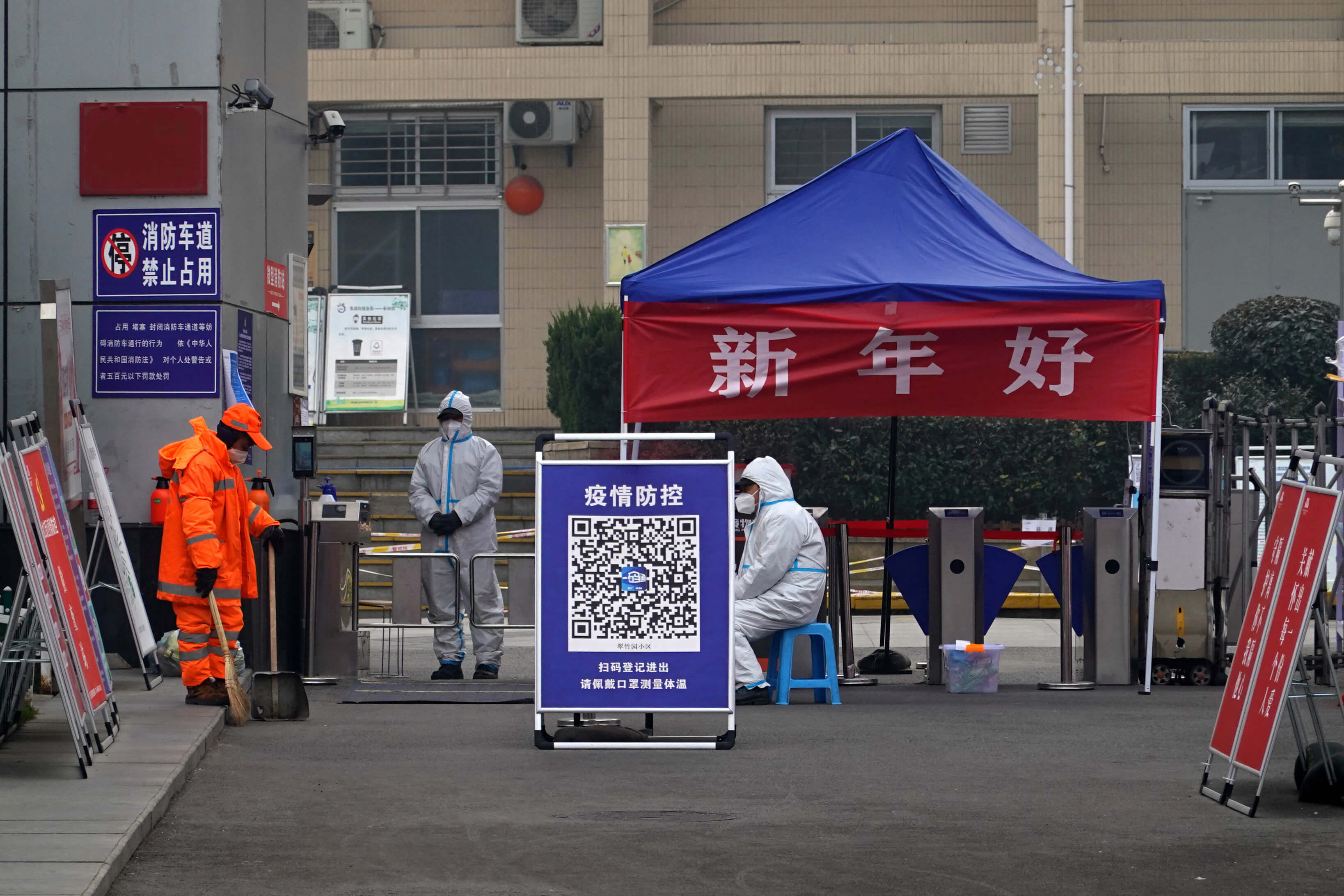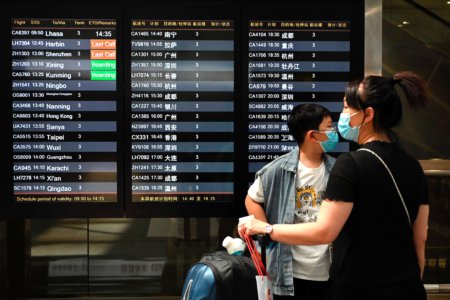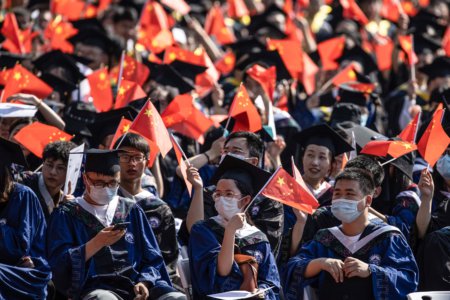
Will travelling to China be on the horizon anytime soon? The country’s zero-COVID policy suffered another blow earlier this week after its first local Omicron outbreak was detected on Sunday in the city of Tianjin, located just a little over 130 kilometres southeast of Beijing, CNN reports.
The local transmission has placed officials high on alert ahead of the Winter Olympics and Winter Paralympic Games, which will kick off on Feb. 4 and Mar. 4 respectively. Tianjin authorities and health officials have mobilised mass rapid testing to its 14 million residents, enacted strict lockdown measures to 29 residential communities, and urged residents to remain in the city unless out of necessity. According to CNN, the variant is rapidly spreading, and has been detected as far as Anyang, a city nearly 500 kilometres away from Tianjin.
China’s confidence in its COVID-19 management strategy to handle the Olympics have drawn criticisms from those locked out of its borders, including international students. Many have called out Beijing’s double standards in admitting foreign athletes over students and workers who have been stranded abroad for two years. What will the next coming weeks signal for international students wishing to travel to China?
We wish China allow students back to China before opening up for olympics as their education is far more important & it’s been 19 months outside their school already #TakeUsBackToChina
PAKISTAN Embassy in China
Chinese Embassy in Pakistan@ImranKhanPTI@XiJingpingReal@AmbNong pic.twitter.com/YdXhJrrS31— VoiceOfInt’lStudents VoIA (@TakeusbacktoCHI) November 16, 2021
Travelling to China 2022: Will Beijing relax its borders post-Olympics?

With stricter quarantine measures and mass rapid testing occurring in different cities due to local Omicron cases, it’s unlikely that China’s borders will ease after the Winter Olympics. Source: AFP / China OUT
Last November, Henry Wang Huiyao, an adviser to the Chinese government expressed his hopes that the country’s stringent COVID-19 measures will ease to allow international travel, reported TIME magazine. “I hope that after the Beijing Olympics, we will see something happening,” Wang was quoted saying.
However, China has remained unrelenting in its position to not admit foreign travellers, and no official declaration has been made to suggest when its borders might be reopening. Zhong Nanshan, the public face of COVID-19 control in China, has said that although maintaining a zero-tolerance approach is costly, the cost would be greater if China opens up. “The policy will be maintained for a long time,” Zhong iterated in a video statement.
Dr. Zhong Nanshan, the public face of China’s Covid control, says that it is costly to maintain the zero-tolerance policy, but the cost would be even higher when China opens up. He concludes: “The policy will be maintained for a long time.” https://t.co/QxcN4WYDDZ pic.twitter.com/80eNYEbZCk
— Yanzhong Huang (@YanzhongHuang) November 3, 2021
Aside from border lockdowns, China’s lack of priority for foreign students is perhaps most telling in the absence of any mention regarding international education at the Symposium on the International Situation and China’s Foreign Relations in December 2021.
“China’s approach must also include consistency and equal treatment of all international higher education students,” writes Curtis S. Chin, Asia Fellow of the Milken Institute, a non-partisan think-tank group. “No matter where they are from, all students seeking to begin or resume studies in China should be treated equally.”
#China 🇨🇳
With many Intl #highered students taking to #socialmedia with #hashtags #TakeUsBackToSchool & #takeUsBackToChina due to #COVID19 travel bans, I wanted write a piece about their plight. Here’s what I came up with for @SCMPNews. Read. Discuss…https://t.co/RK7AQdas7X pic.twitter.com/Quh8mNpMJW
— 🚶🏻Curtis S. Chin (@CurtisSChin) February 24, 2021
China’s seemingly callous treatment of its international students abroad — which number nearly half a million — have drawn the students’ furor since they were effectively locked out of on-campus learning from March 2020. Students have professed their disappointments through social media campaigns such as via the #TakeUsBacktoChina and #LetUsBacktoChina hashtags on Twitter, which is still going strong at the time of writing.
Travelling to China seems like a dimming prospect for international students, who are adamant to return after two years of ineffective online lessons, especially for those who are barred from lab work and practicum needed to complete their degrees.
After two years, international students have had about enough with China’s 🇨🇳 border shutdowns. Empty promises only make things worse. Read more: #LetUsBackToChina #ReturnToChina #Omicron https://t.co/Ih9MNF0F2N
— Study International (@Study_INTNL) January 10, 2022
According to The Economist, China “is unlikely” to ease its borders in 2022, as its exports have remained relatively stable, and foreign direct investment has performed better than it was before COVID-19. Given the country’s effective — albeit harsh — policy in virus containment, Beijing is unlikely to budge from its position anytime soon.
The number of business expats and international student enrolment in China have also reportedly dropped in 2021, a pattern that will continue should Beijing persist on banning international travel.











